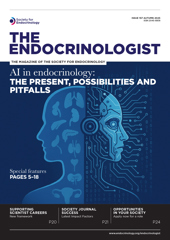ADROPIN IMPROVES TESTICULAR HEALTH IN MICE WITH HYPERGLYCAEMIA
|
Hot topics
Male infertility is a known consequence of diabetes, largely driven by hyperglycaemia-induced damage to testicular function, reduced testosterone and impaired spermatogenesis. However, current treatments, such as metformin, offer limited benefit for restoring reproductive capacity. Adropin, a peptide hormone involved in metabolic regulation, has shown promise in improving glucose homeostasis and reproductive function in non-pathological settings.
In a recent study, Tripathi and colleagues investigated whether adropin could mitigate testicular and metabolic dysfunctions in hyperglycaemic mice. Using a streptozotocin-induced model of hyperglycaemia, they treated mice with adropin or metformin for 15 days and assessed markers of glucose metabolism, insulin sensitivity, testicular histology, testosterone production and germ cell health.
Adropin improved insulin sensitivity and glucose levels while significantly restoring testosterone levels and sperm count. It upregulated key steroidogenic proteins and markers of germ cell proliferation and survival, reducing apoptosis, and outperforming metformin in restoring testicular structure and function. These findings highlight adropin’s protective effect against hyperglycaemia-induced testicular dysfunction and its potential as a novel therapeutic agent for diabetes-related male infertility.
Read the full article in Journal of Endocrinology 266 e250072 https://doi.org/10.1530/JOE-25-0072





